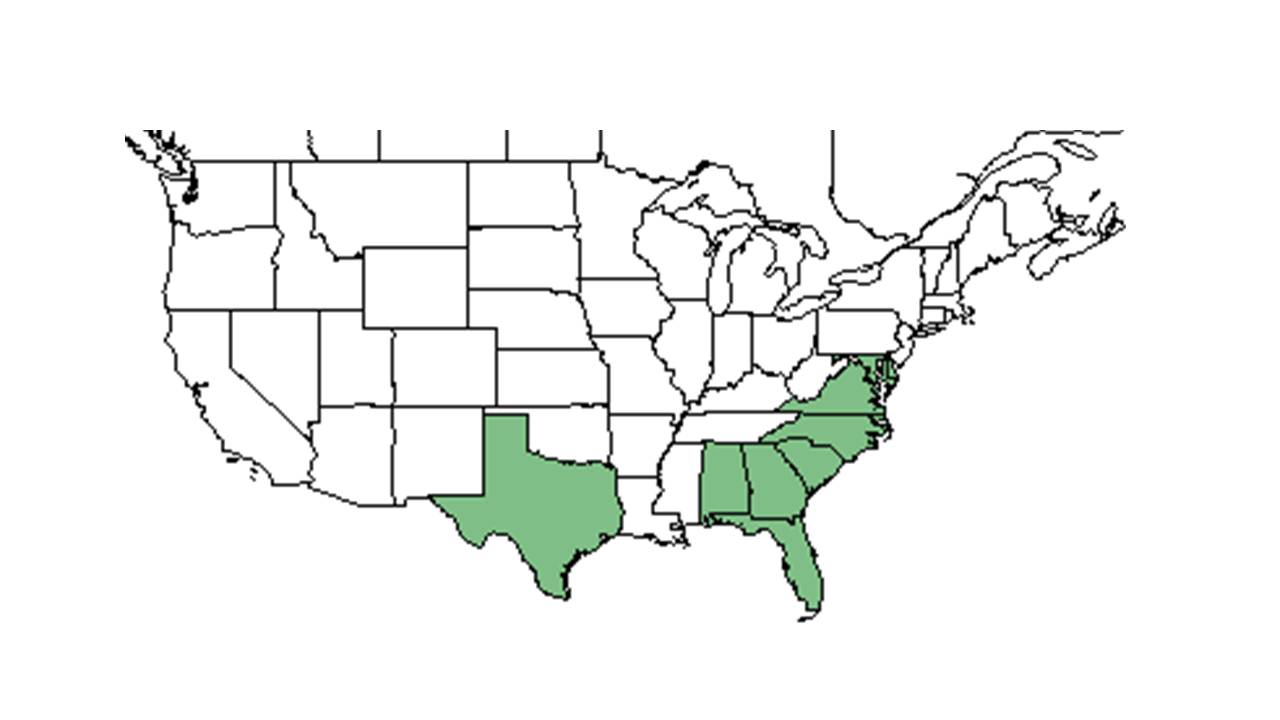Difference between revisions of "Erianthus coarctatus"
KatieMccoy (talk | contribs) |
KatieMccoy (talk | contribs) (→References and notes) |
||
| Line 45: | Line 45: | ||
==Photo Gallery== | ==Photo Gallery== | ||
==References and notes== | ==References and notes== | ||
| + | Florida State University Robert K. Godfrey Herbarium database. URL: [http://herbarium.bio.fsu.edu http://herbarium.bio.fsu.edu]. Last accessed: Collectors: States and Counties: Compiled by Tall Timbers Research Station and Land Conservancy. | ||
Revision as of 17:09, 13 October 2015
| Erianthus coarctatus | |
|---|---|
Error creating thumbnail: Unable to save thumbnail to destination
| |
| Scientific classification | |
| Kingdom: | Plantae |
| Division: | Magnoliophyta – Flowering plants |
| Class: | Liliopsida – Monocotyledons |
| Order: | Cyperales |
| Family: | Poaceae ⁄ Gramineae |
| Genus: | Erianthus |
| Species: | E. coarctatus |
| Binomial name | |
| Erianthus coarctatus (Fernald) R. Webster | |

| |
| Natural range of Erianthus coarctatus from USDA NRCS Plants Database. | |
Common name: compressed plumegrass
Synonym: Saccharum coarctatum
Contents
Taxonomic notes
Description
Distribution
It is found in the lowland areas of old growth longleaf pine sandhill community at the Wade Tract, Thomas County, Georgia.
Ecology
Habitat
In the Coastal Plain in Florida, E. coarctatus can be found in mesic flatwoods, lake shores, pinewoods, sloughs, along canal banks, swales, hillside bogs, dried up ponds, and pine-oak woodlands (FSU Herbarium). It can also be found in roadside ditches and cleared pine flatwoods. Soil types include loamy sand and sandy peat (FSU Herbarium).
Phenology
Flowers and fruits August through November (FSU Herbarium).
Seed dispersal
Seed bank and germination
Fire ecology
Pollination
Use by animals
Diseases and parasites
Conservation and Management
Cultivation and restoration
Photo Gallery
References and notes
Florida State University Robert K. Godfrey Herbarium database. URL: http://herbarium.bio.fsu.edu. Last accessed: Collectors: States and Counties: Compiled by Tall Timbers Research Station and Land Conservancy.